As promised at the end of my butterfly post, I am presenting a small selection of the countless moths of Copalinga Reserve of the Jocotoco Foundation. We heard many oohs and ahs when people came to look at the moths attracted to light. Dominik Hofer set up a bright light bulb with a sheet behind it to observe a sampling of Copalinga’s incredible moth fauna. When Dominik went back to Switzerland, he kindly left the light for us.
Moths would be quite frightening if they were as big as us.
The diversity of moths is overwhelming. Worldwide there are ten times as many moths as butterflies.
Moths have evolved numerous ways to defend themselves. Like many moths the Automeris moth below has a pattern that blends with dead leaves.
When threatened it will spread its wings and scare the predator away with a huge pair of eyes.
When I tried to move the tiger moth below, it exuded a little droplet of yellow liquid. I have read that it is bitter, but I neglected to taste it.
The tiger moth also displayed its blue and orange abdomen. Perhaps this is meant to mimic a foul tasting millipede or other obnoxious critter. Many tiger moths have ears to detect bats. They are hidden on the thorax, near the base of the wing.
You might think its adorable face alone would be enough to deter a predator. It looks too cute to eat.
Paradirphia has a similar strategy to the tiger moth. It falls to the ground when attacked. The wings resemble dead leaves and the abdomen appears to mimic a toxic caterpillar.
Another good moth trick is to look like a wasp. Don’t worry, moths don’t sting.
To learn more about nasty and deceptive tricks of insects, read my first book, Bizarre Bugs.
I’ll close with one moth-watcher and a few more choice moths from Copalinga.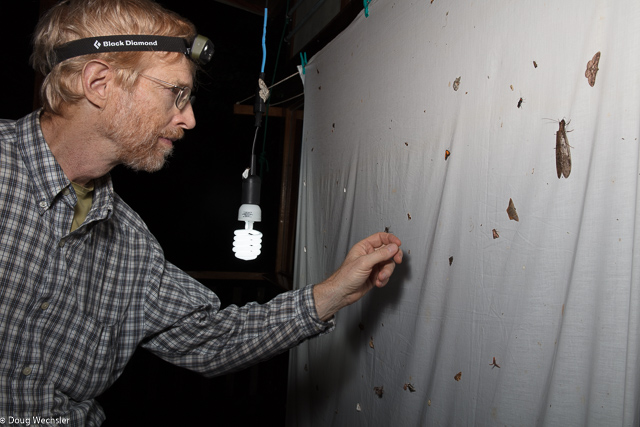
I check sheet for new moths in Copalinga.
Thanks to Dominik Hofer for some ID’s and corrections.

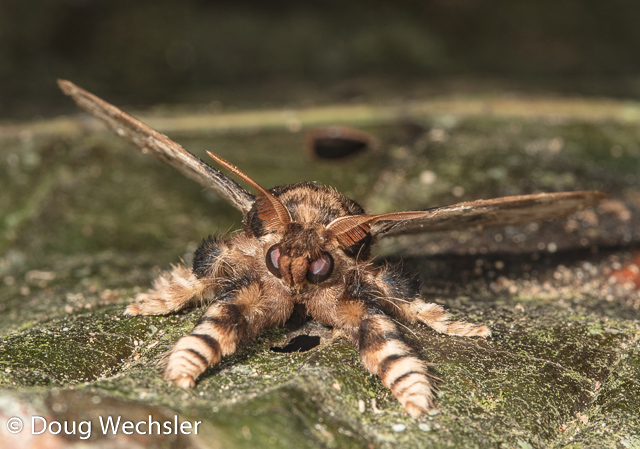
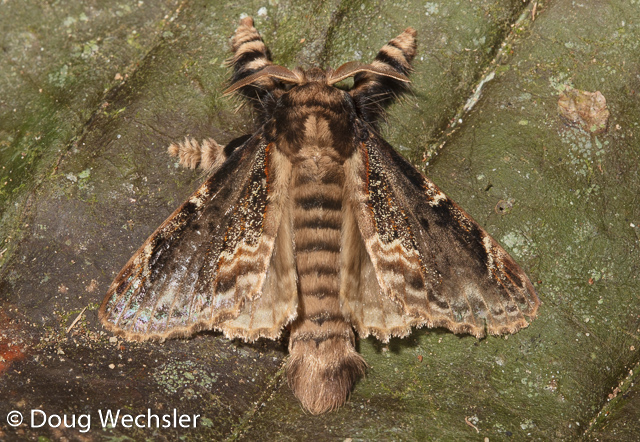
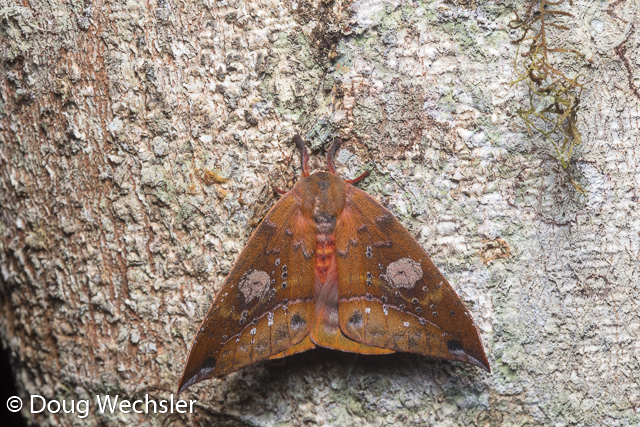
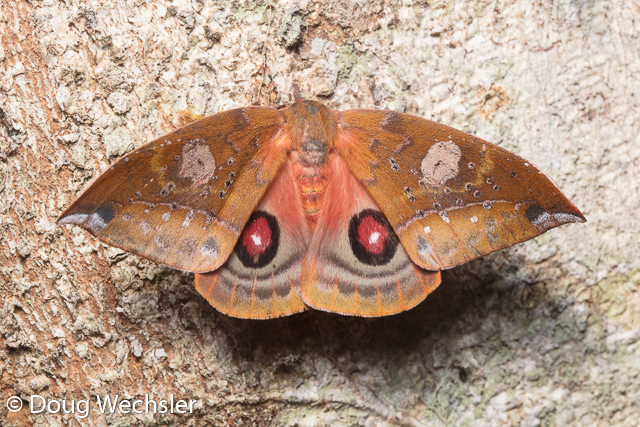
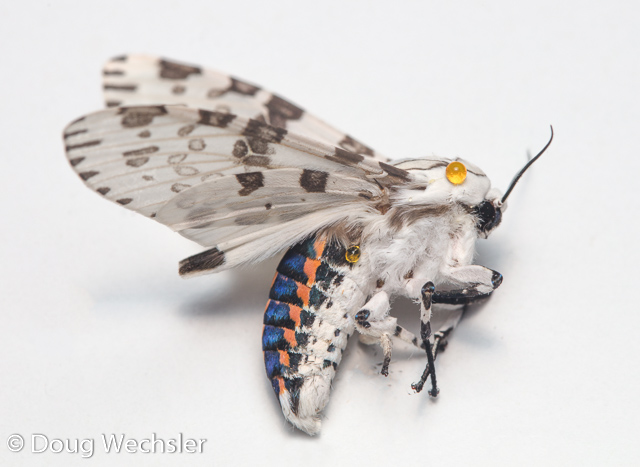
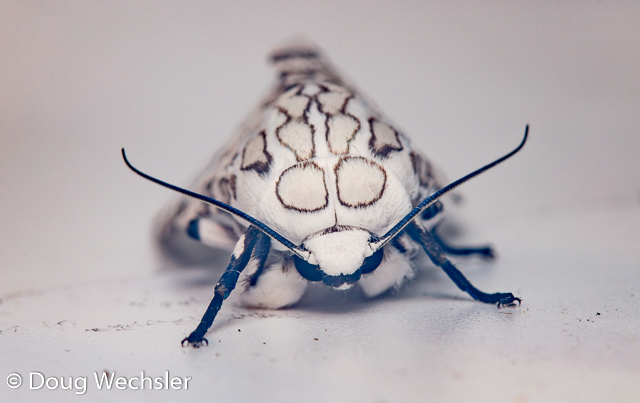
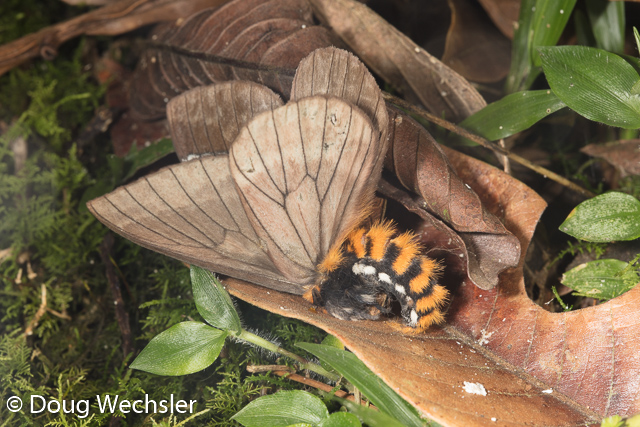
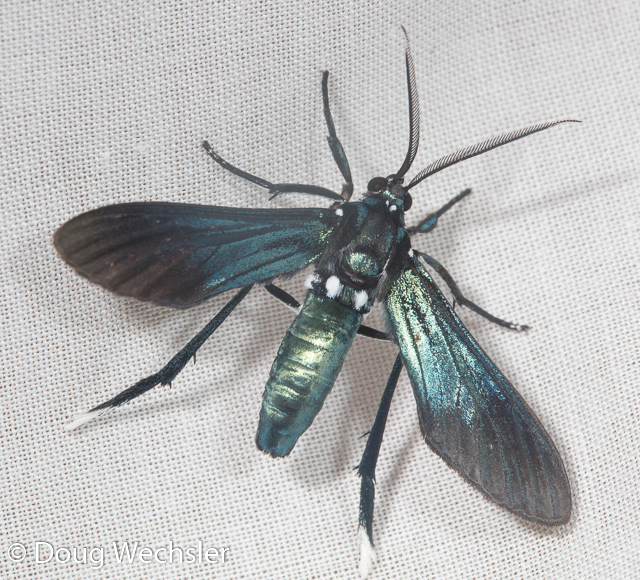
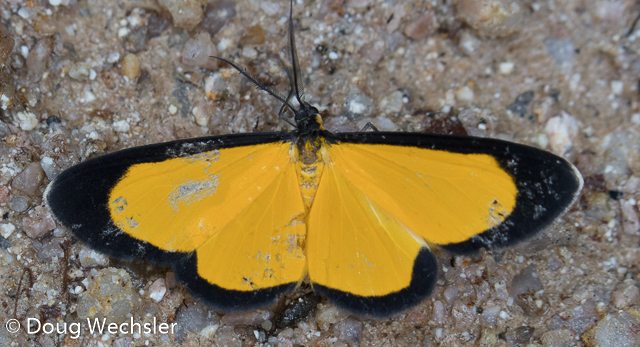
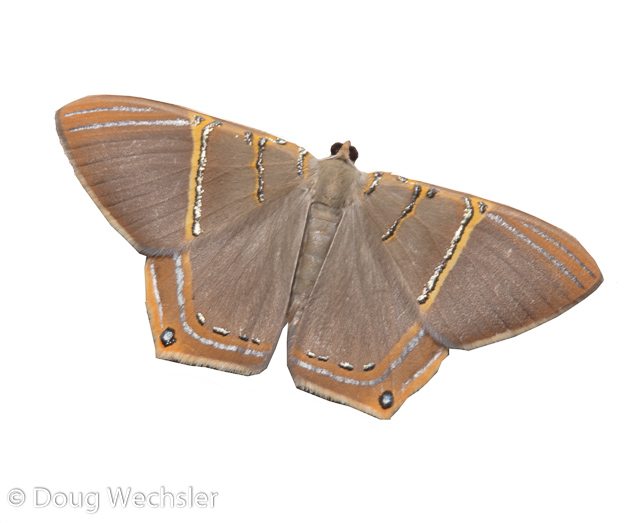
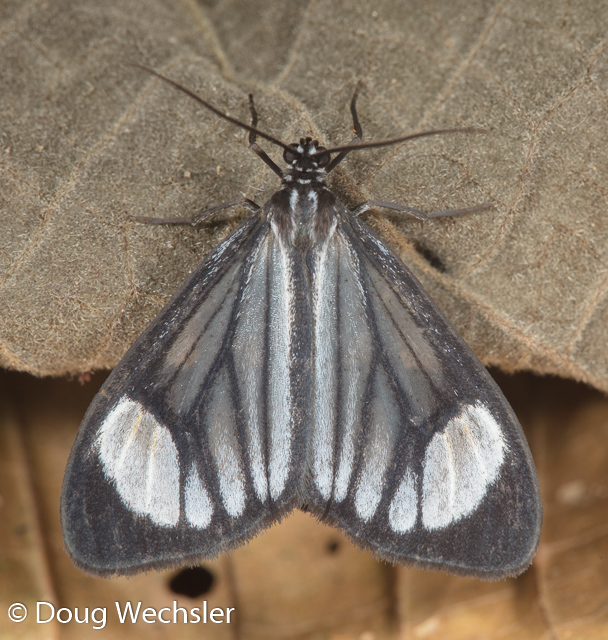
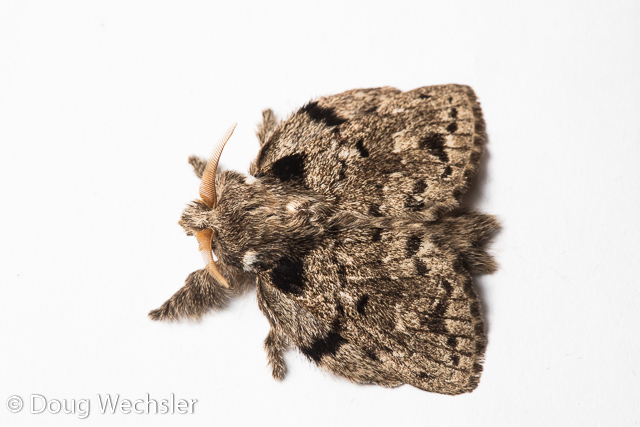
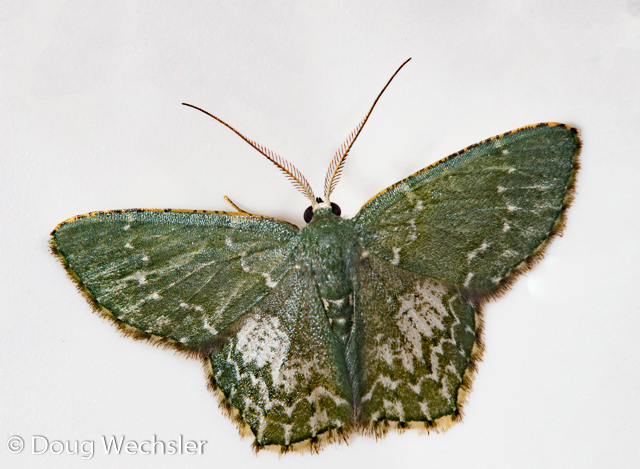
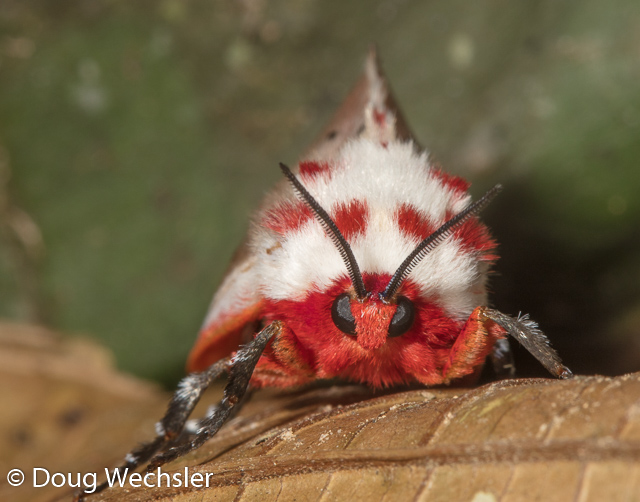
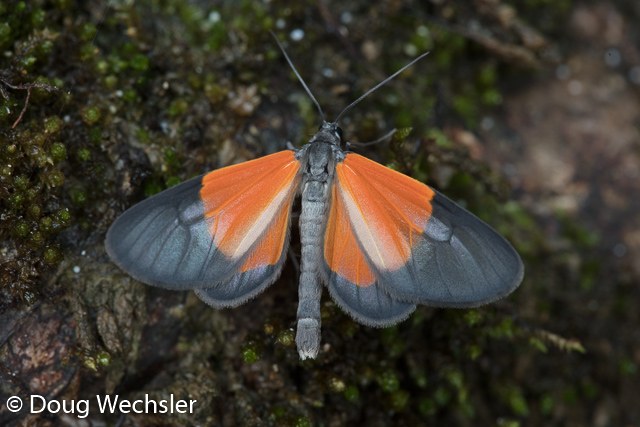
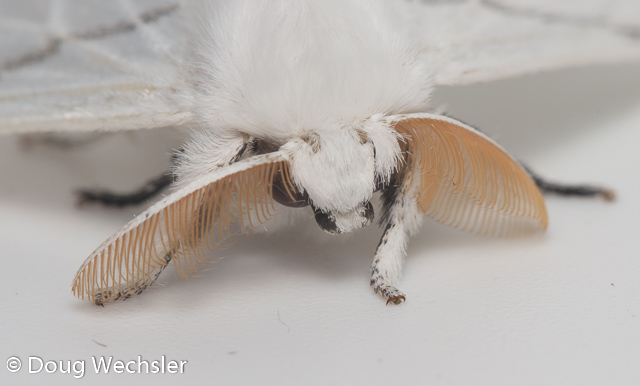
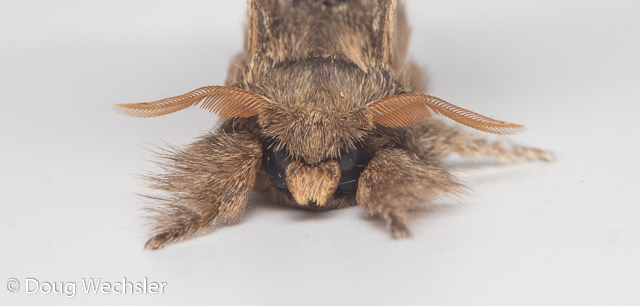
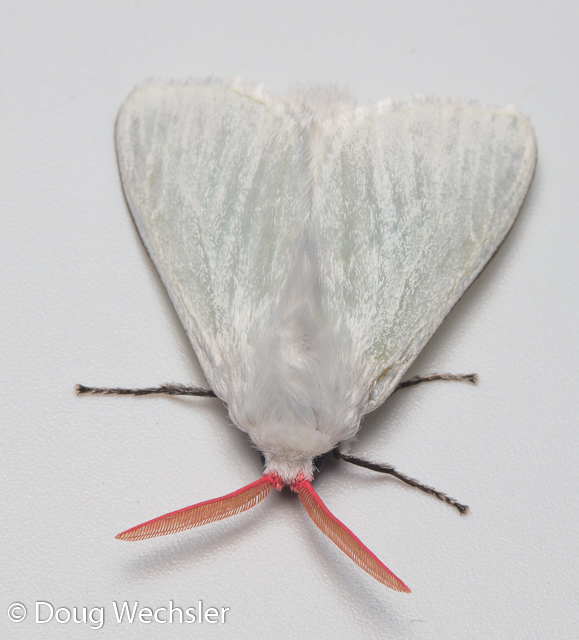
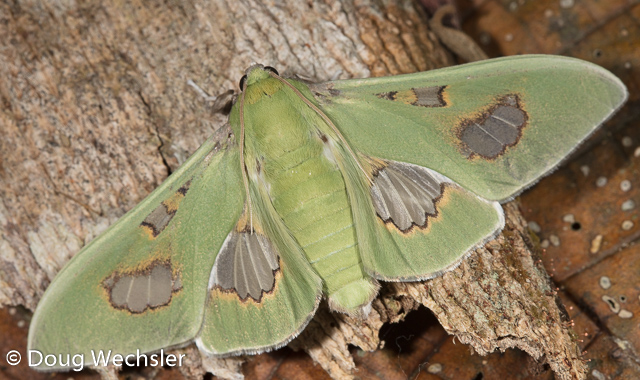
One Response to Copalinga: Moth Mania